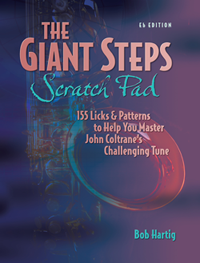Last year on this day, I wrote a post commemorating the horror and heroism that unfolded on September 11, 2001. I cannot improve on that article, and so I invite you to read it, and to remember what your own day was like 10 years ago. If you were old enough back then to grasp the magnitude of what happened, I am certain that you will never forget it. Like me, you will relive it every year until your power to remember is no more. My post written last year speaks for me again today with undiminished vigor, and will do so for years to come.
There is, however, one aspect of September 11, 2001, which that article did not consider. It is something I’ve found myself musing on lately, a phenomenon that is inevitable as generation follows generation. It has to do with our capacity to remember–not to merely observe a date on the calendar, but to recall how that day unfolded for us; what we were doing at the time; how we felt as we watched the Twin Towers burn and collapse, and as news poured in of another plane crashing into the Pentagon, and yet another plunging into a field in Pennsylvania.
While millions of us today can never forget those events, a growing number of Americans are incapable of remembering them with the same stark emotions. This seems incredible to those of us who were adults back then. Nevertheless, it is true: Ten years later, a generation is entering adulthood for whom the tragedy of that fiery morning is but a dim recollection from childhood; and a post-9/11 generation has been born, and is being born, which will contemplate this date from no more than a historic perspective, not with the grief, fear, and fury felt by those of us who witnessed militant Islam’s attack on our country firsthand.
It is that way for all of us. Each generation has its own indelible landmarks. Whatever lies outside those milestones necessarily produces a less visceral, secondhand frame of reference. Living memories belong to those who have lived them. Those who have not can only embrace–and must embrace–such defining events as part of our beloved country’s spiritual DNA, which the sheer force of being Americans compels us all to honor.
I am 55 years old. I was in second grade on November 22, 1963, when the mother superior at my Catholic school entered the room and informed us that President Kennedy had been assassinated. We children gasped–I remember that. But I don’t remember much more. I was only seven years old, too young to feel the pathos of that defining time in our nation, or to process its significance from an adult perspective.
My father fought in World War II. He was on the front lines at the Battle of the Bulge, killing men and watching his friends being killed. On August 6, 1945–his birthday–Dad was in a boat bound for Japan when the “Little Boy” bomb detonated over Hiroshima. That was, he said, the best birthday gift he had ever gotten. To those who maintain that the atomic bomb was an atrocity perpetrated by our country on thousands of innocent Japanese civilians, let me remind you that Japan was the one who first attacked us. And you weren’t on that boat with my dad, headed for what you were certain would be your death. You weren’t around back then.
But neither was I. Nor was I there to feel the joy of V-E Day on May 7, 1945; or to celebrate the Japanese surrender to America on V-J Day, September 2, 1945. No, I was not there. My father was, not I. The closest I could come to even remotely sharing those times with him was nearly 20 years later in the early 60s, as a boy sitting with Dad in our living room in Niles, Michigan, watching the ABC series Combat on our Zenith black-and-white TV.
Decades later, in 1998, I watched the intense motion picture Saving Private Ryan. I did so out of a desire to better understand my father and the war that had shaped him. The movie was powerful, wrenching, and helpful. But it was not the same thing as being there. My dad had been where I could never go.
Nor will my father ever be where I have been. Each generation ultimately hands off this nation and its history to the generations that follow. Those generations cannot experience what we have experienced. We can only hope they will learn from events which for them are historic, but which for us older Americans have been all too real–learn in a way that wisely balances hope-filled idealism which makes life worth living with a realism that recognizes evil for what it is, and stands against it.
Hitler is dead. Bin Laden is dead. But neo-Naziism lives on, and so does Al Qaeda. The enemy is always with us, on foreign shores and in our midst. Perhaps the worst damage he could inflict on us is that in fighting him, we should become like him. Let us therefore look to our own souls, and hold up a higher standard–an enduring nobility of character which only God can empower us to carry onward, torch-like, man by man and woman by woman, from one generation to the next.
In Christ,
Bob

